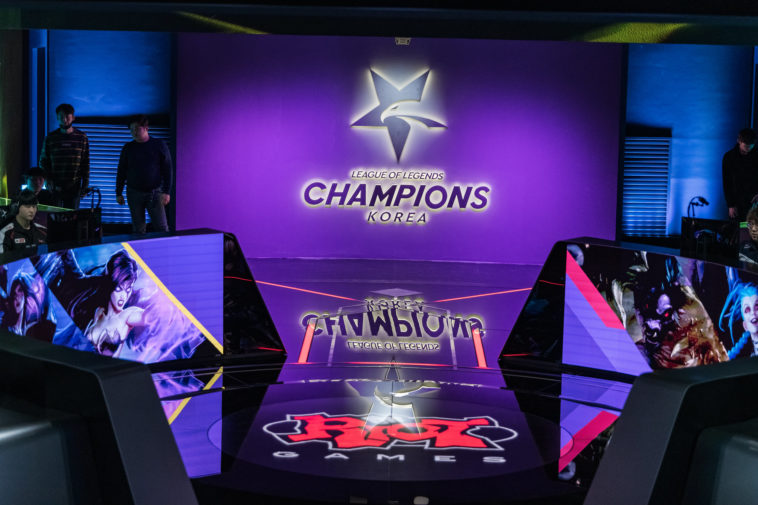On Sunday, April 5th, Riot Korea announced that the LCK would switch to a franchising model for the 2021 season. The Korean league is the last of the major regions to jettison the promotion/relegation model of competitive play— a decision that has already been implemented in 2018 by China (LPL) and North America (LCS), and 2019 by Europe (LEC). Riot Korea promises stability and sustainability through this reformation, but there are also many questions left unanswered with franchising.
League of Legends Champions Korea is scheduled to complete its selection process in September— so here are some benefits and drawbacks to consider.
Pros: Financial Stability
One guarantee of LCK franchising is a higher minimum pay for all participating players. The league plans to mandate “a minimum salary higher than any other professional sports league in Korea – 60 million KRW (~$49,000 USD) – to ensure that [the] players enjoy greater financial stability during their careers.”
As of right now, the league’s minimum salary only demands that players be paid 20 million KRW (~$16,000 USD); consequently, this change would not only triple the baseline pay, but also alleviate some economic stress for professional players. There have been some questionable organizations that have passed through Korean League of Legends that have undercut or even failed to pay their players; so with franchising, Riot Korea and the LCK can expect fairer wages within their league.
Relegation Stress
With the removal of the relegation system, increased roster flexibility and less stress will be welcomed. Bottom-table teams at risk of demotion are often under much public scrutiny and internal pressure by their organizations. Fear of being relegated has also prohibited such teams from forming long-term roster plans, such as experimenting with players or allowing trainees to gain valuable on-stage experience.
Therefore, franchising can help organizations make the most out of their investments; moreover, organizations would no longer feel like they are taking a ‘gamble’ by incorporating new/trainee players onto their team in hopes for gradual growth. By using a few splits to build up team synergy, teams can take advantage of their stable partnership status in the LCK.
Cons: Breakout Stardom
The removal of the promotion/relegation system also leads to the loss of Challengers Korea. Through CK, countless players and teams have broken into the limelight to achieve domestic and international success. Without it, we may never see Cinderella stories such as ESC Ever’s 2015 KeSPA Cup victory or Griffin’s back-to-back-to-back LCK finals appearances upon promotion to the premier league in 2018. And with no real consequence to abysmal performances, franchised teams can potentially ‘stagnate’ in terms of skill while maintaining a spot in the LCK.
Burden on Franchisees
As the LCK shifts, franchisees will now be responsible for harboring a second team to play in the LCK’s academy league. This could lead to complications, as not all organizations may be fully equipped to adequately manage two full rosters. With long-term partnership commitments between franchisees and the league, teams could potentially be depleted of resources before their contract deals expire.
Ultimately, it will be up to the LCK to determine which applicants are most qualified to earn a franchising spot, as well as the organizations themselves to uphold the standards of the league. Long-term liquidation should be preferable to short-term gains for esports sustainability; therefore, only time will tell if franchising is the quintessential format of the LCK.





Loading…